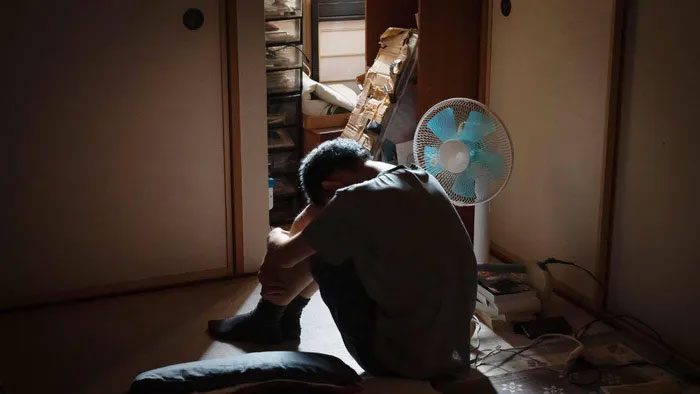When a person is in an overly familiar environment and unwilling to engage with the outside world, their cognitive abilities and intelligence gradually decline.
In recent years, especially after the COVID-19 pandemic, more people have chosen to work from home or limit their social interactions. Some believe they can communicate and earn money through computers or phones without stepping outside. However, is staying indoors for long periods beneficial for health?
A study published in the Journal of Cognitive Neuroscience by MIT and the Cognitive Neuroscience Institute in the U.S. shows that living in the same environment for an extended time can lead to cognitive decline in individuals. This phenomenon is also known as the “mole effect.”
The research was conducted by researchers from the University of New South Wales, Australia. They surveyed 4,175 people who had to endure prolonged isolation due to the COVID-19 pandemic.

Staying indoors for too long reduces a person’s intelligence. (Illustrative image).
The results showed that after these individuals experienced long periods of isolation, not only did their mental health deteriorate, but their cognitive abilities also diminished, with some even gradually falling into depression.
Among them, over 70% of respondents expressed negative feelings such as boredom, depression, and fear of infection. Approximately 30% experienced cognitive decline during isolation, such as memory loss or difficulty concentrating.
Researchers point out that being in a monotonous environment for extended periods is a primary cause of psychological and cognitive issues.
A diverse environment can stimulate the brain and improve physical functions. If one remains in the same environment day after day, the brain struggles to distinguish between different memories, leading to cognitive decline.
A report in the World Biological Psychiatry indicates that the longer humans are exposed to outdoor environments, the more gray matter is formed in the cerebral cortex. This area is closely linked to memory capacity, meaning that staying indoors for too long can lead to memory decline.
Moreover, a study published in the New England Journal of Medicine at a research station in Antarctica found that, over about a year and a half, the levels of neurotrophic factors in the staff living there decreased by nearly half. This reduction is closely related to depression rates, indicating that long-term living in the same environment can lead to psychological issues.
Mental health experts from the Royal New Zealand College of Psychiatrists, through a survey of over 40,000 Norwegian volunteers, found that those who regularly engage in outdoor activities, regardless of the intensity, have a significantly lower risk of depression compared to those who avoid social activities and stay indoors for long periods.
Overall, individuals who do not participate in outdoor activities face a risk of depression that is 1 to 2 times higher.
It is clear that staying indoors for too long is an unhealthy lifestyle that can lead to both physical and mental health issues.
As social beings, humans need community support; even introverts require participation in social activities. Without community support, individuals can easily feel isolated and helpless.
Some choose to stay at home for extended periods, often due to a lack of social skills, introversion, or difficulty finding their place in society.
Take Xiao Xiao, a 28-year-old from China, as an example. With limited education, he could only work in manual labor. After losing his job, he planned to stay at home to rest but unexpectedly became addicted to gaming. Earning a little money through selling virtual items, he gradually lost interest in going outside.
Even though this income was just enough to cover living expenses and life was quite precarious, he chose not to seek employment. His gaming addiction and reluctance to interact with others led to a decline in his health. He stated that he found his self-worth in the gaming world. Therefore, even recognizing that this lifestyle is unhealthy, he chose to continue immersing himself in it and avoided facing the real world.
This phenomenon is not an isolated case; it is happening worldwide.
In Japan, such individuals are referred to as “hikikomori,” meaning “withdrawn” or “confined.” They avoid contact with the outside world, choosing to stay home and evade social activities. This social avoidance behavior increasingly leads them into a vicious cycle, ultimately resulting in diminished intelligence and social capabilities.
In reality, social skills are not innate; they are gradually accumulated through regular participation in social activities. By continuously interacting with the outside world, individuals can find their place in various environments and situations. They recognize their self-worth and maintain a healthy mental state.


















































